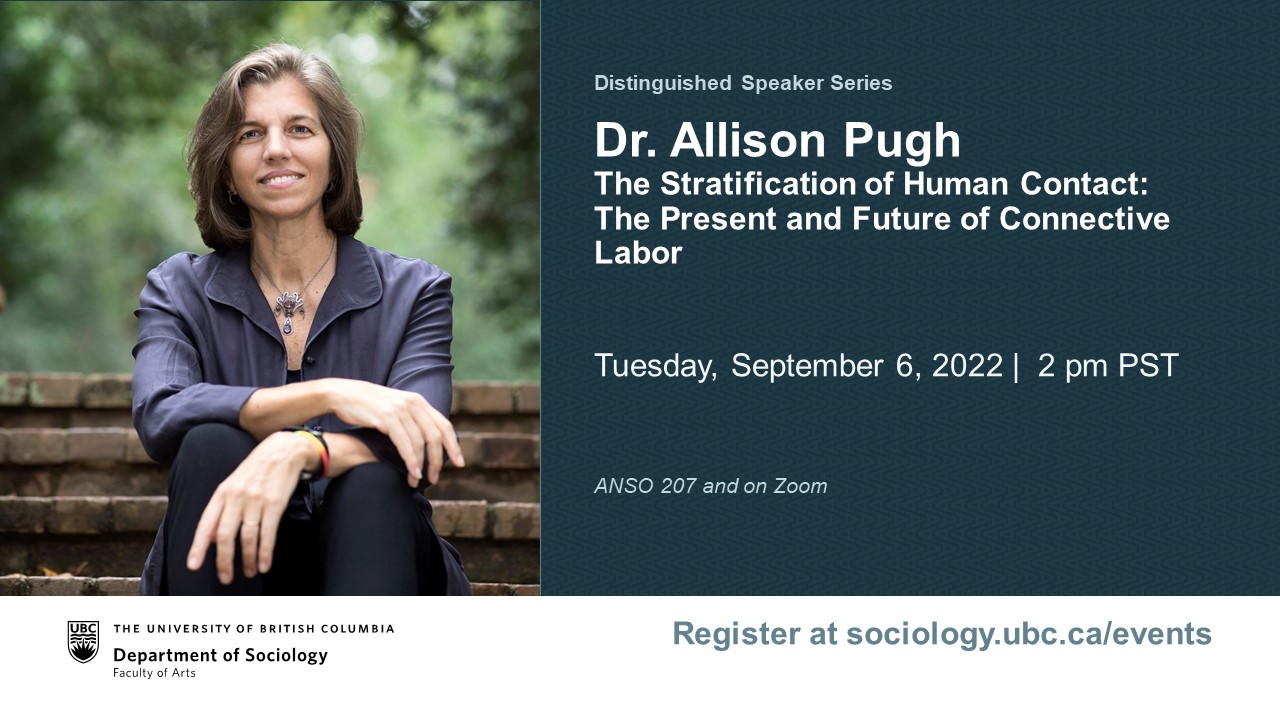

UBC Sociology welcomes Dr. Allison Pugh for our 2022/2023 Distinguished Speaker Series Academic Launch. She will be presenting a lecture titled, “The Stratification of Human Contact: The Present and Future of Connective Labor.”
“Connective labor” is the relational work between practitioner and recipient, typified by therapy, teaching, or primary care, where workers serve as a human witness of the other in their efforts to produce a particular end. Contemporary capitalism – insecure production, expansive consumption and rampant inequality – has helped to generate both the widespread need for recognition and the connective labor jobs that provide it. Yet ironically it is also ushering in the rationalizing, standardizing systems – including the apps and AI – that are transforming this work. Based on 100+ interviews and 300+ hours of observation, my research argues that the contemporary degradation of connective labor, particularly for disadvantaged people, makes its automation seem more acceptable, as do tensions stemming from the risk of moral judgment. Yet in serving as a human witness for others, connective labor workers make dignity and purpose for themselves and other people. Furthermore, evidence suggests the risk of moral judgment may be part of what makes their interactions meaningful. Thus, without understanding more about connective labor, we may be “solving” its problems with solutions that make it worse.
Bio: Allison Pugh is a Professor of Sociology and Chair of the Department of Women, Gender and Sexuality at the University of Virginia. Her 2015 book The Tumbleweed Society: Working and Caring in an Age of Insecurity (Oxford) is a study of the broader impacts of job precariousness. Her book Longing and Belonging: Parents, Children, and Consumer Culture (University of California Press) received three distinguished contribution honors from the American Sociological Association and was a finalist for the C. Wright Mills award. Her research has been funded by the National Science Foundation, the American Council of Learned Societies, and the Center for Advanced Study in the Behavioral Sciences at Stanford. She is writing a book for Princeton University Press about the standardization of interpersonal work.